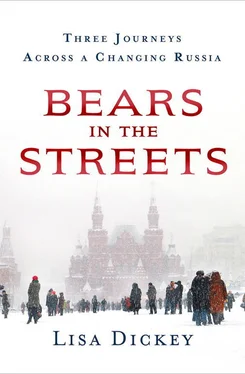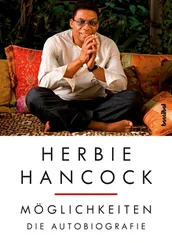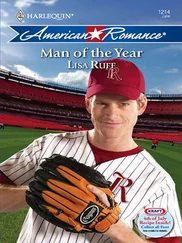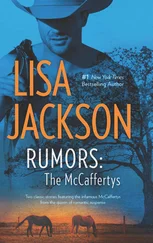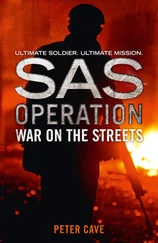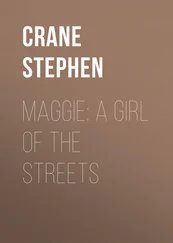The room was filled with young women in colorful, flowing skirts, many of them wearing scarves as head coverings. They sat in a circle around a low, round table laden with trays of apples, oranges, bananas, and grapes. Pavlov, dressed in a bright yellow Hugo Boss shirt and yellow knit hat, and wearing round glasses with no lenses in them (a fashion choice, he said), sat in a corner behind the women. Apart from Pavlov, there was one other man in the room, a young, silver-haired guru in a beige robe, wearing a string of beads around his neck and a long thin braid down his back.
I sat down cross-legged among the women, and the guru opened the service by gesturing to Pavlov. “How many years ago was it?” he asked. “Seven?”
“It was sixteen years ago,” Pavlov replied, then pressed his hands together in a prayerful pose.
“Sixteen years!” the guru announced, shaking his head in wonder. “Sixteen years ago, this man was hit by a bus in Thailand. He was almost killed, but we prayed for him here, and now look! He is healthy.” Pavlov smiled and nodded his head, as the women pressed their hands together. He’d told me in 2005 that he credited Krishna for his recovery, and it was clear that this was taken as truth at the temple too.
The guru starting chanting, singing prayers from a book. He lit a fire in a square bowl on the table, and every few minutes he tossed on a spoonful of oil, causing it to flare dramatically. Each woman had been given a metal bowl filled with seeds, and at periodic signals from the guru, we tossed handfuls onto the altar. I’d never been to a Krishna ceremony before, and I found the rhythmic chanting mesmerizing—all the more so because it was in Sanskrit, so I couldn’t understand a word of it. Staring into the fire, I found myself sliding into a more tranquil state than I’d been in for weeks.
I could have sat like that for hours, watching the fire leap and the seeds clatter onto the altar, but about ten minutes in, Pavlov took my arm and whispered, “They’re opening up the altar. Come see.”
When we’d entered the temple, a long curtain had obscured the main part of the sanctuary. But now, the curtain had been thrown open to reveal an ornately carved wooden altar, with colorful statues, portraits of the Swami, and a decorative wrought-metal screen with lotuses. Pavlov picked up a double-sided conga drum and started to play, while others joined in with chants and singing.
Pavlov had begun his musical career as a drummer, and his skills were apparent. For the next 20 minutes, he cast a rhythmic spell over the room as devotees prostrated themselves on the smooth wooden floor in front of the altar. He played with a fluidity and ease that belied the complicated rhythms he was producing, and as I watched him sway and chant, his eyes closed in apparent ecstasy, I could understand why he was so drawn to this place. His face was utterly relaxed, more so than I’d ever seen it.
After the services were over, we popped into the vegetarian café. Someone in the temple had handed Pavlov a coupon for two free lunches, so we went through the cafeteria line and got our meals: beet salad, tomato soup, stewed chickpeas, and fruit compote. As we sat at a table, Pavlov piped up, “Priyatnovo appetita!” —bon appétit, in Russian. “Do you know this phrase?” he asked. It was as if he’d already forgotten that I speak Russian.
We talked for an hour over lunch, but whenever I asked about his life now, he kept returning to the past; he never seemed to tire of talking about Zvuki Mu, Brian Eno, and the events of the eighties and nineties. I kept trying to guide him into the present, as I was truly curious about whether he was performing and recording anymore, and if not, how he made a living. But nothing worked; he wouldn’t, or couldn’t, focus on the here and now.
Then a woman walked up and started whispering to him. I couldn’t hear what she said, but I heard his reply: “I wish I could help you, sister. But I can’t. I’m in the same situation, haven’t worked in six months.”
Aha , I thought. Perhaps this was why he didn’t want to talk about the present. I felt bad for having pressed him, and decided to back off the questioning. And just like that, he brought it up himself.
He told me that six months ago, his Funky Time radio show had lost its sponsor, the audio company Sennheiser. “We’ve been searching for a new sponsor, but they’re hard to find,” he said. “But I have some meetings set up.” He also told me that the Intel gig had ended a few years ago, but that he was continuing to play music and work as a DJ. And then he turned back to the digressions of earlier, going on a long tangent about how he became a vegetarian, the perils of eating meat, and how I should purify my system if I wanted to have a long life.
At last, we finished lunch and walked to the metro. Looking for conversation, I brought up the unusual wallpaper he’d had in his living room back in 1995—a view of New York City’s Twin Towers at night. I asked if he still had it.
“Yes,” he said. “It’s still there.” Then he asked me where I’d been on September 11. I told him I was living in Washington, D.C., and that my then-girlfriend worked a few blocks from the Capitol building. At first, she hadn’t realized the gravity of the attacks, and I’d had to convince her to leave work and come home—which she’d had to do on foot, as all public transportation was shut down in the chaos. “It was a terrible day,” I told him, then added how depressed I’d felt for weeks afterward.
“I saw a documentary,” he began, and in a flash of dread, I knew what was coming. “It proved that it wasn’t bin Laden who brought down the towers. It was a plan by the American government…” I felt the air go out of me. Of all the difficult conversations I’d had with Russians on this trip, this was the one I simply couldn’t take. I could readily admit that I didn’t know exactly what was going on in Ukraine, and that I wasn’t an expert on Vladimir Putin or Kremlin politics or international relations. But this 9/11 truther stuff simply unhinged me.
“Don’t,” I said, raising my hand. “It’s not true. Let’s not discuss it.” I made no attempt to hide my irritation—not that I could have anyway. Mercifully, the next stop was mine, and I gave Pavlov a quick hug goodbye.
* * *
The next morning, I woke up to an in-box of e-mails from Pavlov. They were full of links and attachments to articles written about him in the 1990s—including, oddly, my own article about him that had been published in 1996 in the Moscow Times . I spent a long time in my hotel room, reading, watching clips, and trying to figure out what to do next. Pavlov still felt like an enigma, and I wasn’t sure that meeting again would provide clarity. But I wanted to try.
I’d hoped to see him perform—either as a DJ, or a drummer, or a rapper—but he didn’t have anything lined up for the week I was in Moscow. So we made a plan instead to go to a concert: his old Zvuki Mu bandmate Pyotr Mamonov was putting on a comeback show, with a new group called Otzvuki Mu. [6] Literally, “From Zvuki Mu.” Not to be confused with “The Brand New Zvuki Mu,” which is another offshoot of the original Zvuki Mu band.
I asked Pavlov if we could also get together before the concert, since it was a few days away, but he told me he was busy with meetings.
So now I had a couple of days on my own to further explore Moscow. I took the metro out to VDNKh, the site of the Soviet Union’s once-proud Exhibitions of the Achievements of the National Economy. I remembered coming here in 1988, expecting to see a proud monument to Soviet production, and being surprised at how run-down and sad the place felt then. My most vivid memory was of a claw machine, a glass box with a mechanical claw you could manipulate to pick up a prize; the most coveted treasure, as far as I could tell from watching Soviets playing the game, was a dusty, capless tube of toothpaste.
Читать дальше
